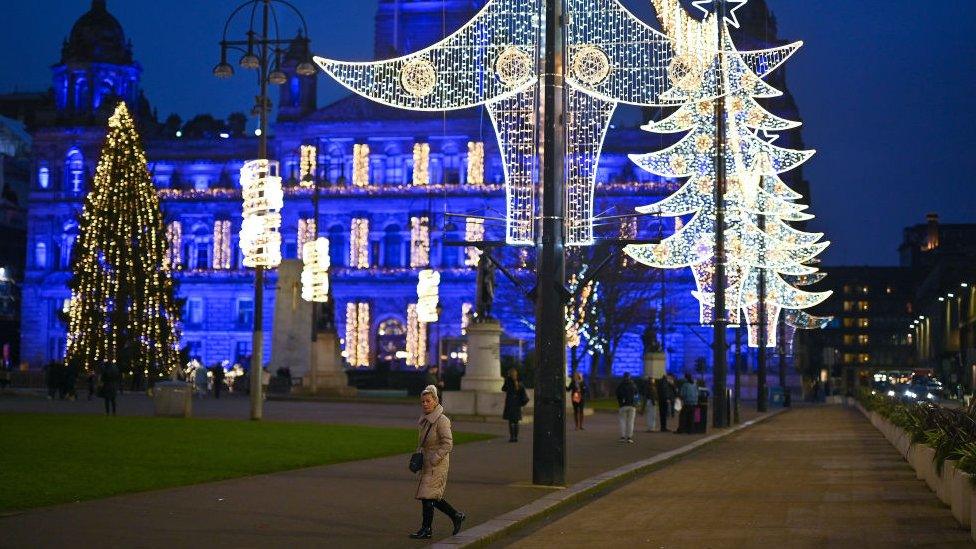Fireworks mark subdued UK new year amid Covid spread
- Published
Watch: London welcomed 2022 with fireworks at many of the capital's landmarks
Fireworks marked the arrival of the new year in London, despite many events being cancelled as the Omicron Covid variant continues to spread.
The public were asked to stay away from the displays in the UK capital, with a series of fireworks and drone shows broadcast from a number of landmarks.
In Scotland, restrictions meant the usual Hogmanay events were cancelled.
Despite official events being scrapped crowds gathered in both cities to see in the start of the 2022.
Big Ben's bell struck 12 times at midnight - the Westminster clock has been undergoing restoration since 2017 which led to the landmark being covered in scaffolding and the bell silenced.
London's New Year's Eve fireworks display usually sees crowds gather on the banks and bridges of the River Thames.
Instead, a series of locations around the capital - including the Shard, Millennium Bridge and St Paul's Cathedral - were used as backdrops for smaller light and drone shows as well as traditional fireworks.
Spectators were discouraged from attending, but the events did still attract groups of people.
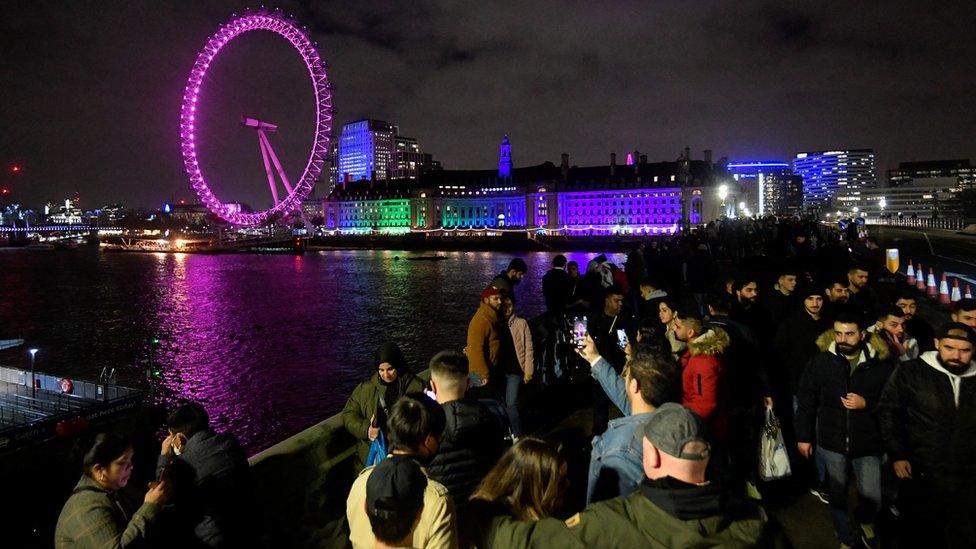
People gathered on Westminster Bridge
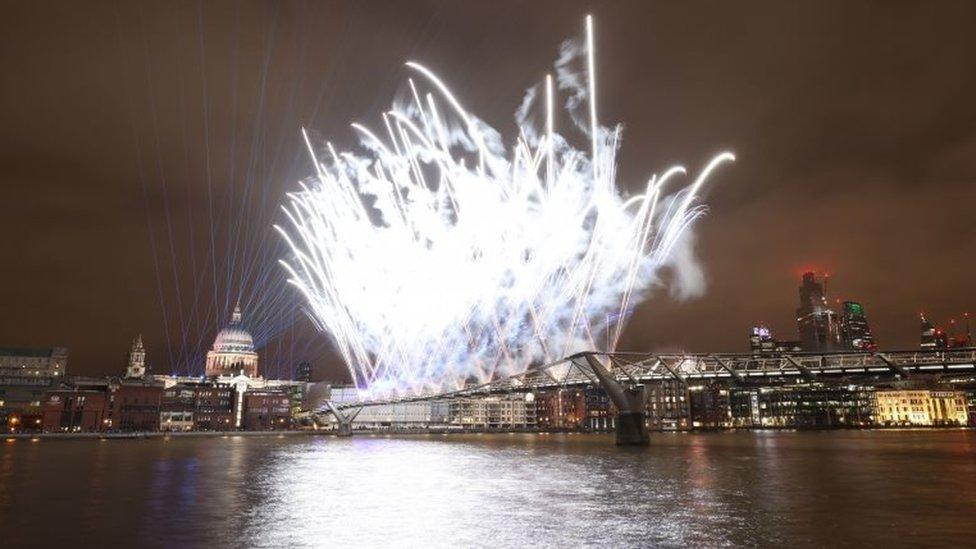
Fireworks were set off from the Millennium Bridge in central London
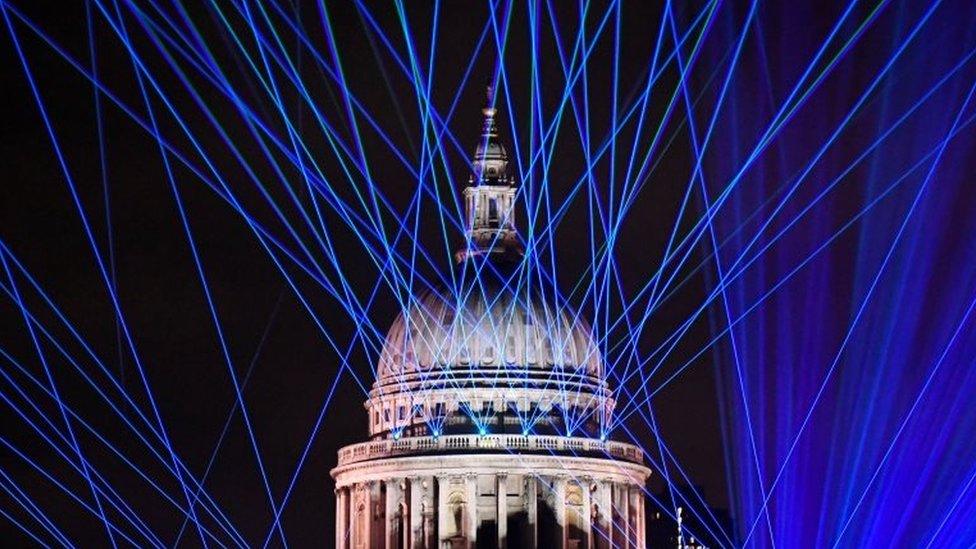
A light display was seen over St Paul's Cathedral
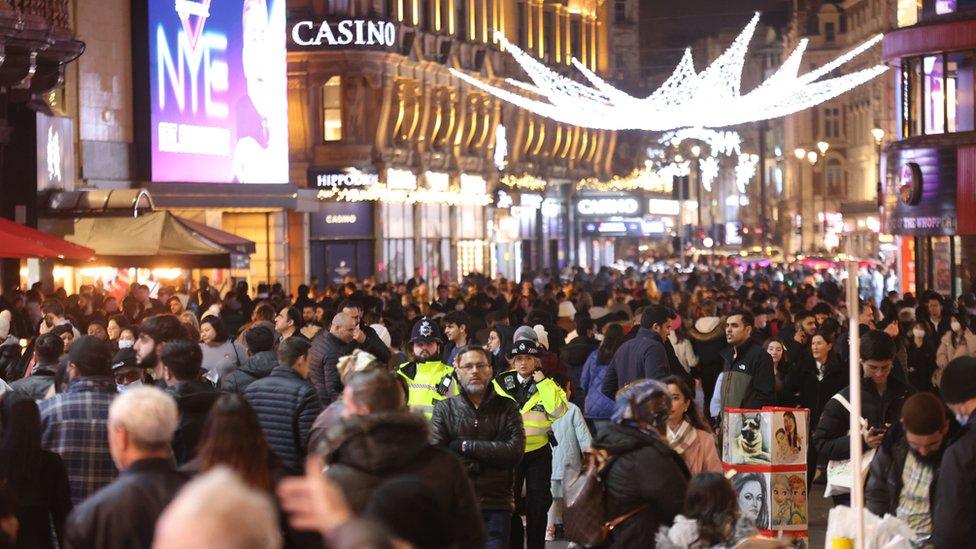
Crowds gathered in London's Leicester Square
Despite Hogmanay celebrations in Edinburgh being cancelled - and a warning from Scotland's First Minister Nicola Sturgeon that people should "stay at home as much as possible" - around 1,000 people went to the top of the city's Calton Hill for the bells.
Others decided to make the most of a scaled-down New Year, including Eileen and Chris Chalmers from Dreghorn in Ayrshire who had a few days extra holiday to use.
Travelling in their campervan, Mrs Chalmers said that with large scale festivities cancelled, "it seemed an ideal time to come to the city".
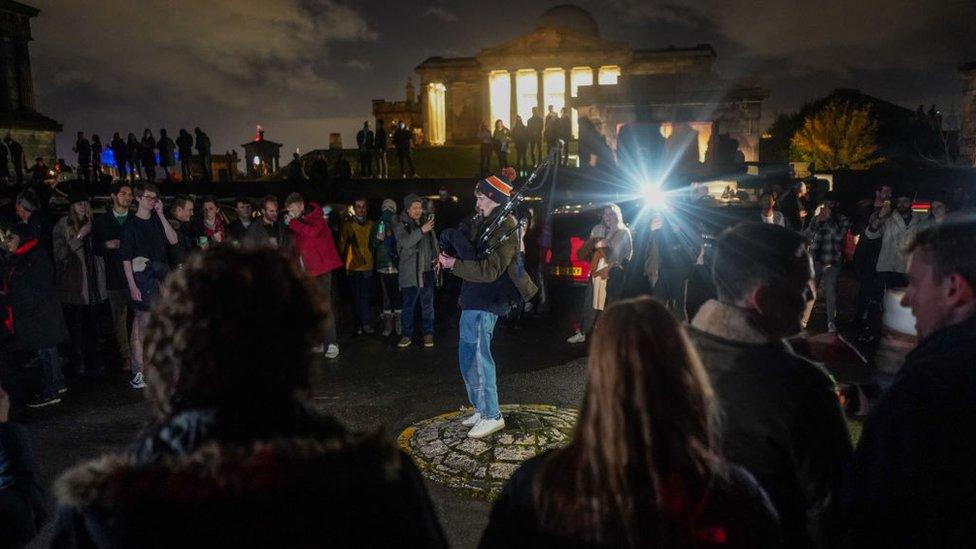
Hogmanay celebrations were cancelled in Scotland but people still gathered in Edinburgh
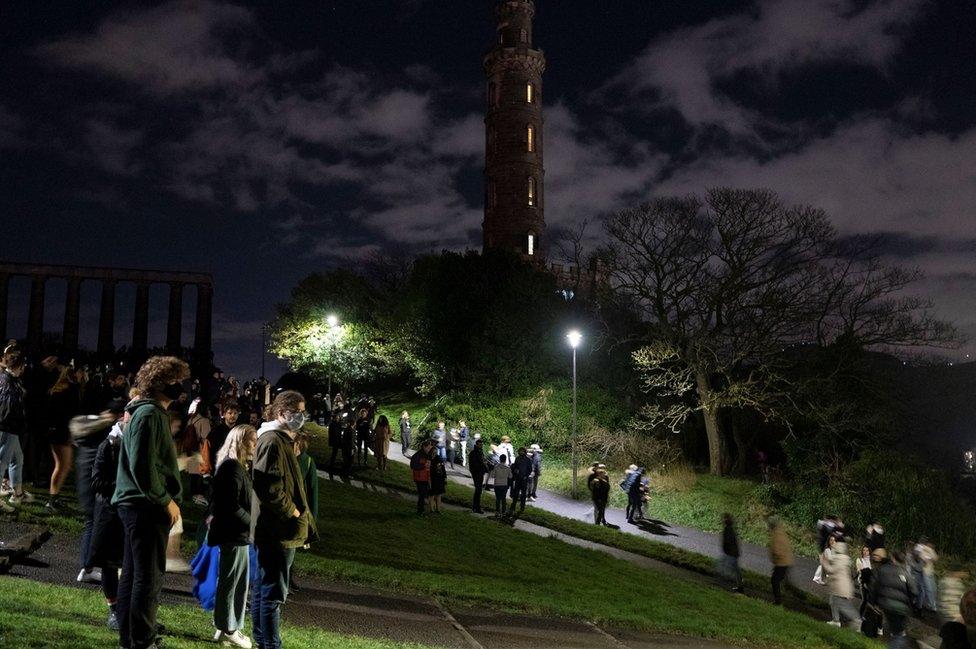
Crowds gathered on Edinburgh's Calton Hill to celebrate the New Year
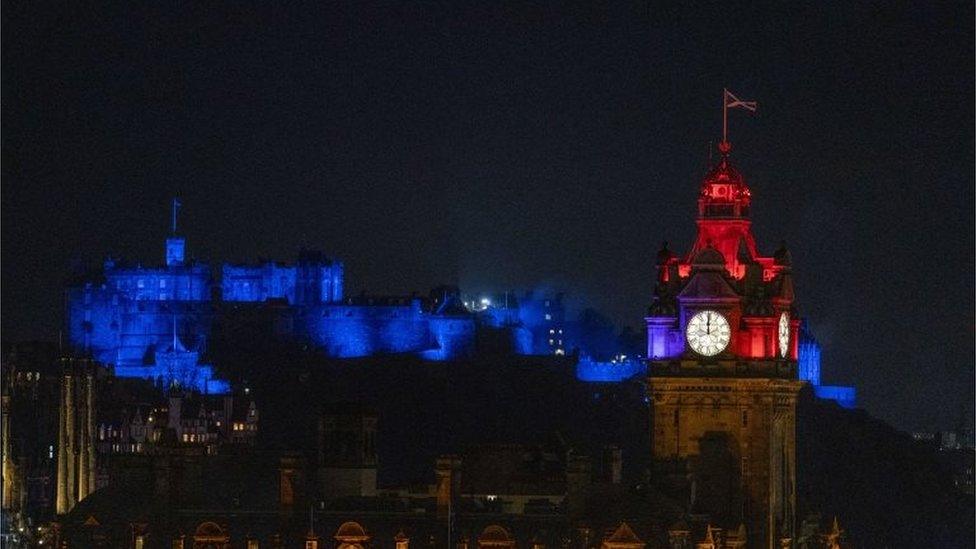
Edinburgh Castle and the Balmoral Clock seen at midnight on New Year's Eve
The celebrations in Wales were also muted as Alert Level Two restrictions have placed a limit on the number of people who can meet in pubs and restaurants.
Nightclubs have also been closed and a maximum of 30 people can attend indoor events - or 50 if gathering outdoors.
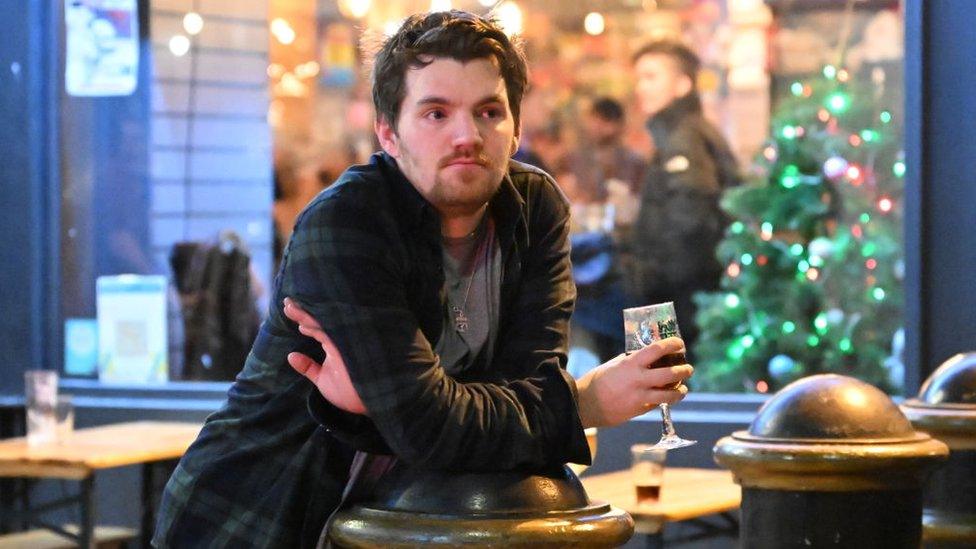
The rule of six has returned for bars, restaurants and other hospitality venues in Wales
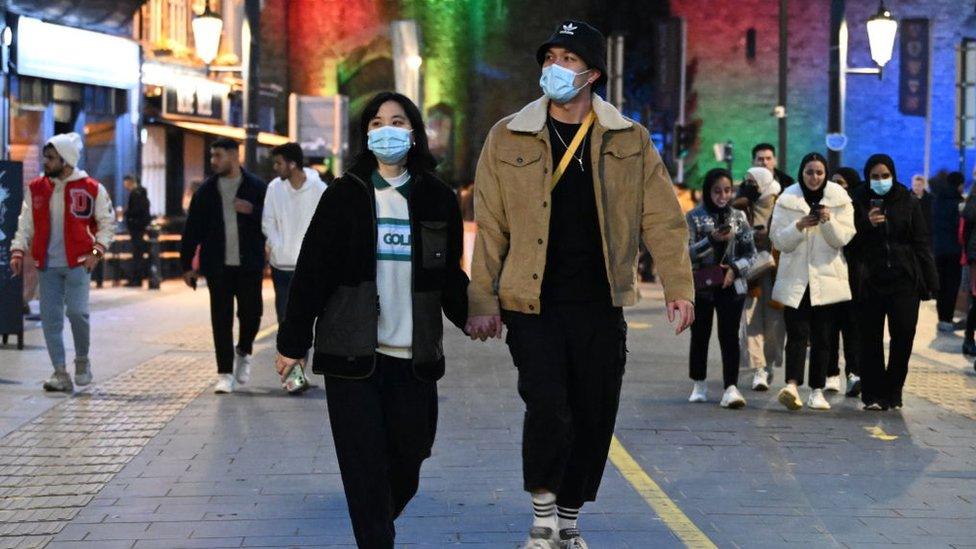
Nightclubs have been closed in Wales
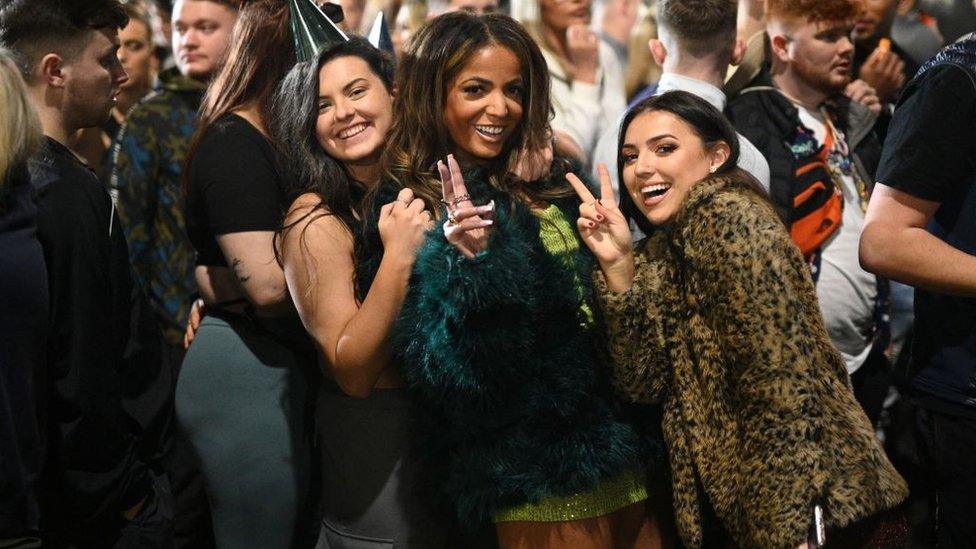
But in Manchester, revellers queued to get into the 10,000 capacity Depot Mayfield club
The night was also quiet in Belfast because nightclubs are closed due to Covid rules and dancing has been banned in other hospitality venues.
The smaller-scale festivities took place against a backdrop of the UK reporting 189,846 new Covid cases in the latest 24-hour period - another record high.
The Met Office said New Year's Eve 2021 was the warmest on record with a temperature reaching 16.5C (61.7F) at Bala, in Wales. It beat the previous high of 14.8C (58.6F) set at Colwyn Bay, north Wales, in 2011.
It said New Year's Day was also the warmest on record, with temperatures of 16.2C (61.2F) recorded at St James's Park in central London.
A scaled-down return of the New Year's Day parade in London took place with musicians - including the Voice UK winner Molly Hocking - entertaining an audience in Waterloo Place.
After being cancelled last year, the parade - which has previously seen more than 600,000 people flood the city centre, was limited to 600 spectators.
Watch: Fireworks and light displays as the world welcomes 2022
Matthew Taylor, chief executive of the NHS Confederation, said that he hoped people had enjoyed themselves on New Year's Eve but said it was important people continued to do everything they could to slow down the spread of the coronavirus.
"I hope people had a great time last night and look forward to the new year but remember last night NHS staff worked through the night in these very difficult circumstances, they are coming for two years of working under this pressure and it is really important that we are not complacent," he told BBC Breakfast.
In his new year's message the Archbishop of Canterbury urged the public not to "despair" over climate change and said there were "real reasons to hope in 2022".
And the Prince of Wales used his new year message to pay tribute to the "brave individuals, local communities and international organisations" who are "responding to great needs by providing vital assistance".

THE GREATEST JOURNEY OF THEM ALL: Can they really make it around the world in 80 days?
FILMS FOR THE WHOLE FAMILY: Enjoy a cosy night in with BBC iPlayer

Related topics
- Published1 January 2022
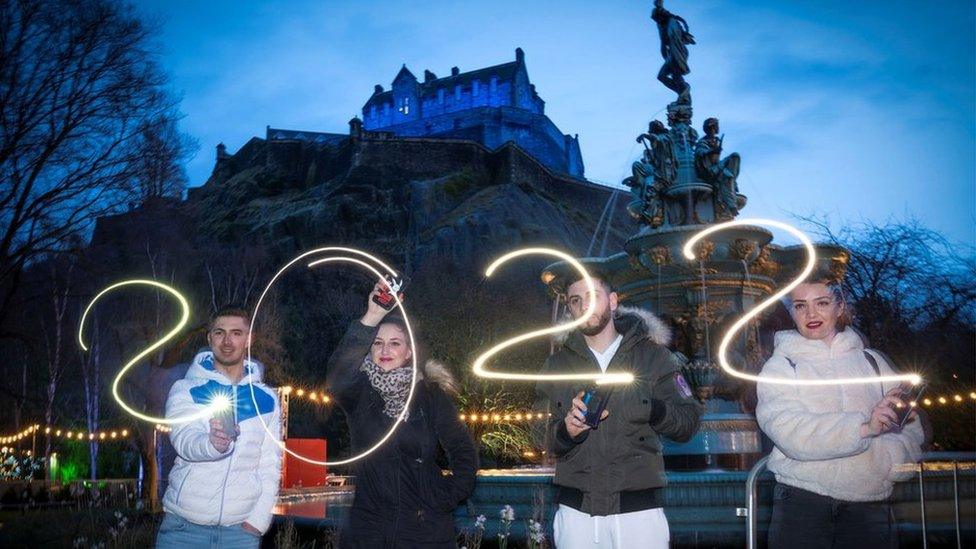
- Published31 December 2021
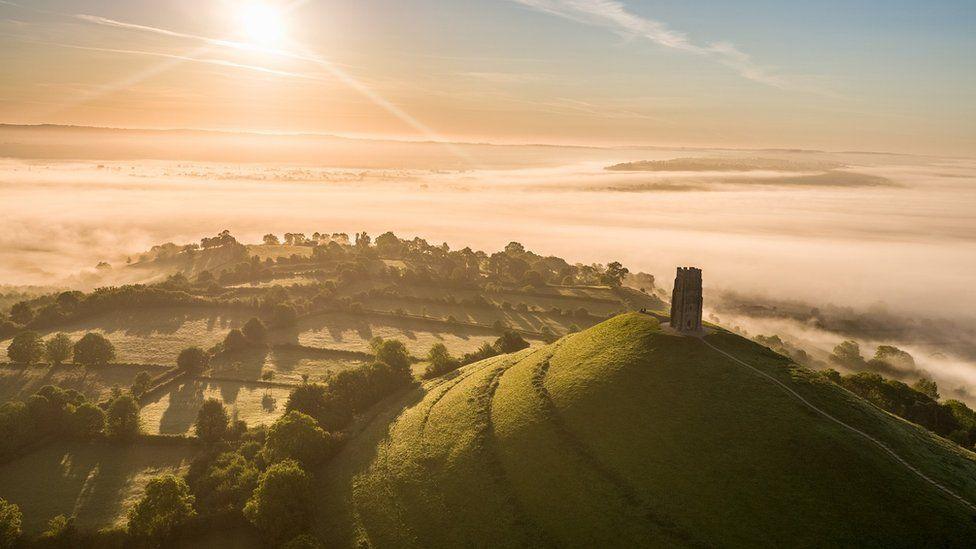
- Published31 December 2021
